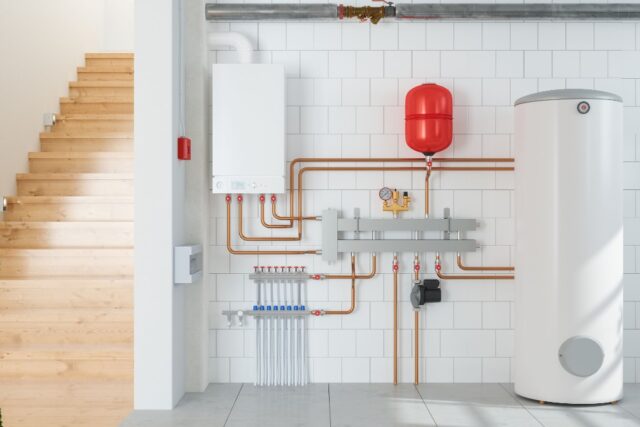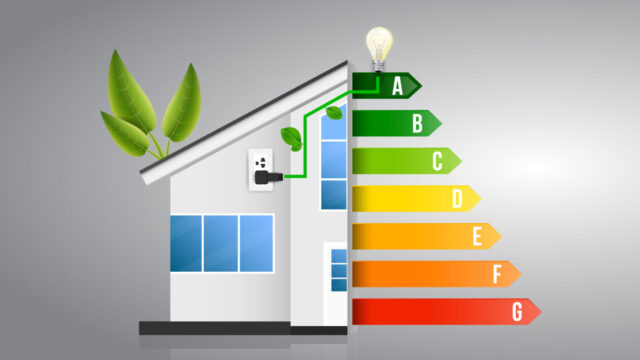
Your choice of heating system for your home goes far beyond aesthetic considerations. It also has significant ramifications on energy consumption costs and more.
This article will compare gas and electric heating systems.
To learn more, check out this article on the most efficient heating systems.
Cost
Cost should always be the top consideration when selecting gas and electric heating systems since heating accounts for much of home energy consumption. Cutting these costs could make an immediate impactful difference on home utility bills.
Though this might not always be the case if your property already has natural gas service installed, an electric system may typically be less expensive to operate than a gas system. Switching over may save money in monthly expenses rather than continuing to pay for natural gas heat.
Gas heaters may also be more costly to run than electric systems in light of rising energy prices, with their prices fluctuating depending on factors like geopolitics, supply and refinery expansions that impact the cost of natural gas.
Electric systems have historically been more expensive to operate than natural gas ones, although advances like high-efficiency heat pumps have made this difference significantly smaller. Furthermore, falling renewable energy prices encourage more homeowners to opt for electric heating over natural gas.
Energy Efficiency

Choose gas or electric heating systems carefully, as the energy used can significantly impact your annual energy costs and environmental footprint.
An electric system using a heat pump to push air over a heating element is more energy-efficient than other solutions while emitting less carbon dioxide emissions when powered with renewable electricity sources.
Resistance-based systems may convert nearly 100% of electrical energy consumed into heat, while heat pump heating can deliver even higher efficiency with up to 400% conversion efficiency rates!
Installation
Installation processes vary based on the type and size of heating systems being installed. For example, a gas furnace will need more space than an electric heat pump. Furthermore, installing either requires cutting holes in walls and ceilings to run pipe and electrical wiring through them.
Because they don’t rely on pipes or fuels to transmit heat, electric heat pumps are smaller and simpler to install than gas heaters because they convert electricity into heat using resistance heating elements instead of releasing carbon monoxide emissions during combustion.
Safety Considerations
When choosing between gas and electric heating systems, safety should always be a paramount concern. Gas heating systems come with specific safety considerations, such as the potential risk of carbon monoxide leaks.
To mitigate these risks, regular maintenance and the installation of carbon monoxide detectors are crucial. On the other hand, electric heating systems have their own safety practices, including ensuring proper insulation and well-maintained wiring to prevent electrical hazards.
Homeowners must prioritize safety by adhering to safety guidelines, conducting routine inspections, and investing in safety devices, regardless of the heating system they choose.
Regional Climate Factors

The choice between gas and electric heating systems should be influenced by the climate in your region. In areas with milder winters, electric heat pumps may prove to be more cost-effective due to their energy efficiency.
Conversely, regions with extreme cold may benefit from the consistent and reliable performance of a gas furnace. It’s essential to assess your local climate conditions, including temperature fluctuations and the duration of the heating season, to determine which type of heating system is best suited to meet your specific heating needs. Regional climate considerations play a vital role in optimizing comfort and efficiency.
Availability of Renewable Energy Sources
One crucial factor in the decision-making process for heating systems is the availability of renewable energy sources in your area. Electric heating systems, particularly those powered by electricity from renewable sources like solar panels or wind turbines, can significantly reduce your carbon footprint and environmental impact.
Homeowners should explore the availability and affordability of renewable energy options in their region. By harnessing clean and sustainable energy, you not only contribute to environmental conservation but also enhance the eco-friendliness of your heating system, aligning it with modern sustainability goals and reducing reliance on fossil fuels.
Long-Term Warranty and Support
When selecting a heating system, it’s essential to consider the availability of long-term warranties and reliable support services. Many heating equipment manufacturers offer extended warranties that can provide peace of mind regarding the long-term reliability of your system.
Additionally, having access to dependable customer support and maintenance services can be invaluable in ensuring your heating system’s optimal performance throughout its lifespan.
Homeowners should research the warranty options offered by manufacturers and choose heating systems backed by warranties that align with their expectations. Adequate warranty coverage and reliable support can minimize potential repair costs and downtime.
Energy Efficiency Incentives

Homeowners should explore potential energy efficiency incentives and government programs that may be available in their region. Various governments offer incentives, tax credits, and rebates to encourage the adoption of energy-efficient heating systems. These incentives can significantly offset the initial installation costs of high-efficiency gas or electric heating systems.
It’s advisable to check with local authorities and energy agencies to determine the eligibility criteria and application processes for these incentives. By taking advantage of available programs, homeowners not only reduce their upfront expenses but also contribute to energy conservation efforts and make environmentally responsible choices while improving the overall efficiency of their heating systems.
Making the Right Choice Depends on Individual Circumstances
The choice between gas and electric heating systems hinges on several factors, including cost, efficiency, installation requirements, and environmental impact.
While electric systems—particularly high-efficiency heat pumps—are gaining favor due to their lower carbon footprint and advances in technology, gas heating can be a more viable option for homes with existing natural gas infrastructure.
Homeowners must weigh the initial investment against long-term savings and consider the ecological consequences to make an informed decision that aligns with their economic and environmental goals. It’s clear that as technology and energy markets evolve, so too will the dynamics of this decision-making process.
There are pros and cons to both gas and electric heating systems, so the best choice for your home may ultimately depend on your specific needs and priorities. Ultimately, whatever system you choose, proper maintenance and regular service are crucial for maximizing efficiency and longevity.









